A long weekend in Zambales, and the magic of Look Left
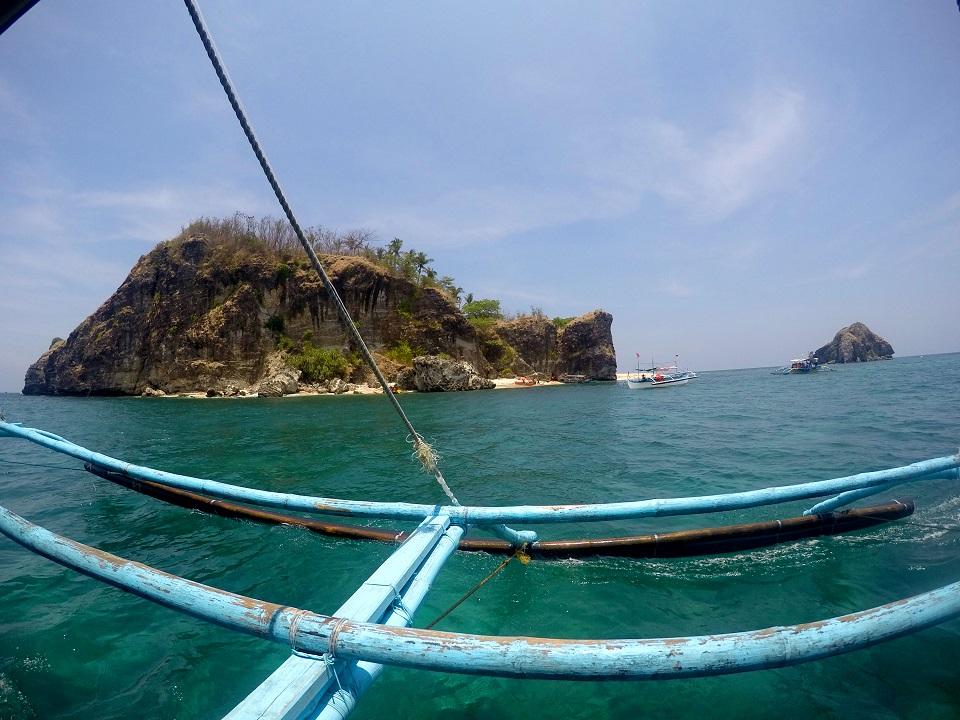
It is high noon, and you are stuck in a procession of vacationers. Never mind that you left at the crack of dawn; it's been six hours for a supposedly four-hour trip, and you are nowhere close to your destination. You console yourself by thinking you'll arrive just in time for checking in at two, and then the car's air conditioning gives up. You ask yourself for the nth, and certainly not the last, time: Why are vacations so stressful?
To add to the stress, this is your second day to be stuck in long weekend traffic, because you just got back from another beach trip. So here you are, with your family, the trunk filled with food and drinks like you packed for doomsday, swimwear still damp from yesterday, and an out-of-tune guitar. There's nothing you can do but drive and try to sing, except you’ve run out of music to play.
Every so often someone will say: We really shouldn't have stopped over at the first gas station. It's true. The first gas station is crowded and you will spend more time in line and waiting for your not-so-fast food than you will eating it. The crowd is a preview of the rest of your trip. Traffic everywhere, and even when you finally get to the beach, there are so many people you can barely see the sand. Everyone is getting grumpy.
You are able to park in a gated lot, and now it is time to carry the cooler, your clothes, the food, and all the ice you could buy at a store on the way, along the shore to reach the place you reserved a month ago. This was before you realized that going to the beach during a long weekend is not something you want to do. You tell yourself, this better be worth it.
The sand burns your feet, your arms are sore, and the sun is unbearable. You ask yourself: What am I doing here? And then, finally, you reach the place, a beach commune called Look Left (because that is how you will find it). It is everything the internet said it would be. Everyone is smiling. It is worth it.
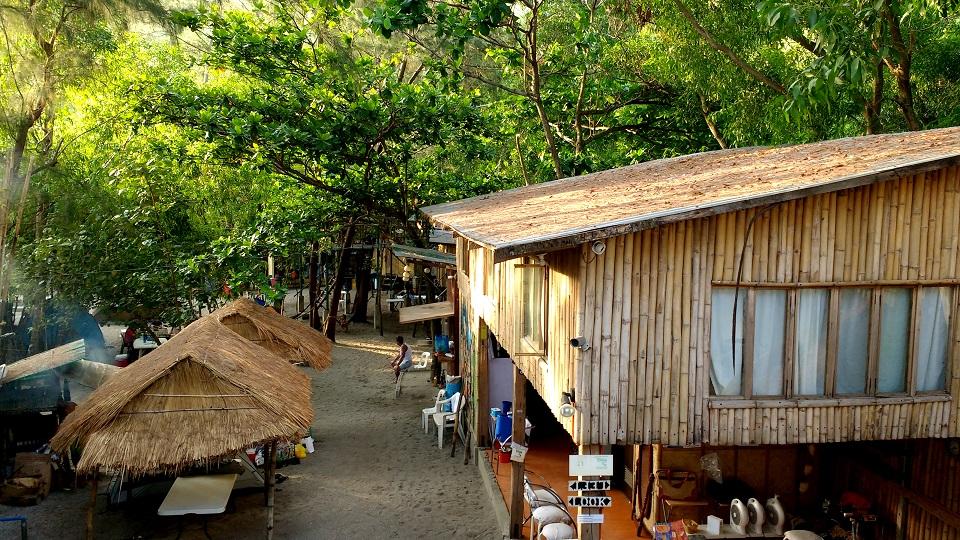
The moment you all arrive, cold towels and water are offered. The commune is a serve-yourself kind of place—elevated huts surround a camping area, and common bathrooms are at one end of the property. There is a grill, a dishwashing area, and a kitchen. Everywhere you look, a hammock. At the center, there is a treehouse.
Because you are with family, you are not going to camp. You chose to stay in the commune's latest space, upstairs and downstairs air-conditioned rooms. Everyone is tired and hungry, but your first thought is to get on the swings. There are swings. All is well. It becomes clear why there is a sign that says Look Left is not responsible for loss of job due to overstaying.
Marion, the owner, welcomes you and gives you an orientation of sorts. She asks if you have any questions, and you say no. You have a lot of questions, as you will realize soon enough. Can we get water from the dispenser? Do you have a pot we could borrow? How do we arrange a boat trip? Do you have ice? What about beer? Can we get seafood to grill? She, and everyone else at the commune, are infinitely patient and helpful. You begin to relax. The beer gets cold, the rice is cooking, and the sun is finally setting. Before you all head to bed, you agree to leave at seven the next day for a boat trip.
It is seven, and breakfast is cooking. People are not awake. You need coffee. Conversation revolves around last night's sleeping experiences. The beds are like Tetris, and the blankets are short. Someone says: Are you sure they're blankets? Maybe they're towels. They are blankets. At nine, everyone is ready, but there is no boat. Soon you are told, there are no more boats. You start drinking. Look Left works its magic, and a boat is found.
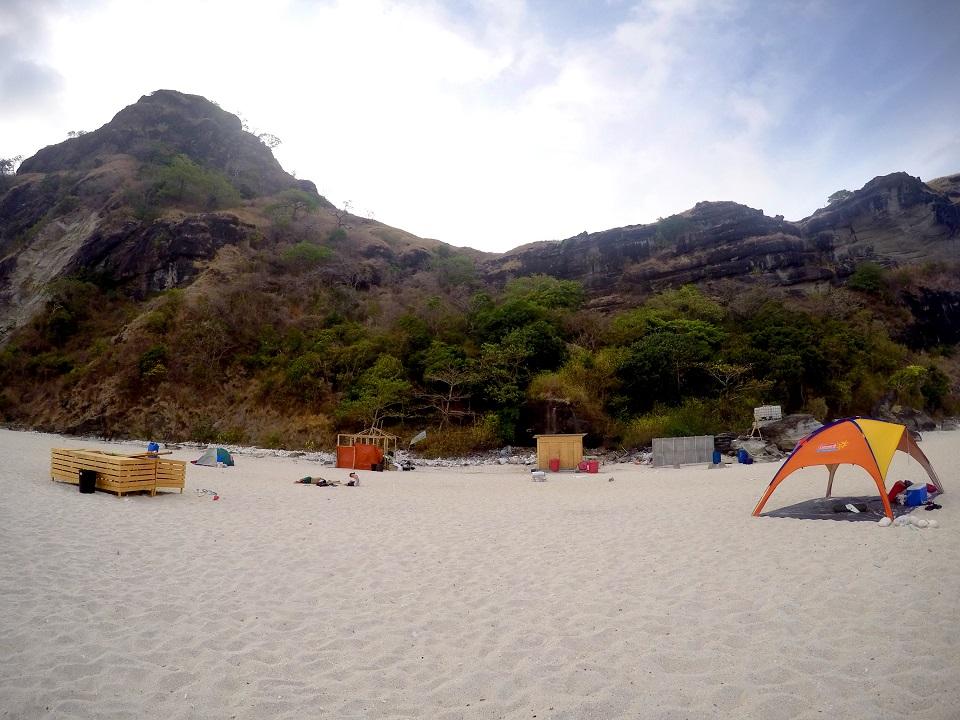
You choose to visit the nearby islands, Camara and Capones, as well as Anawangin Cove. You've heard lots of great things about this cove, so you agree to save it for last. You wrap yourself in a scarf, but there's no hiding from this kind of sun. There's a slight breeze, and as you approach the first island, you are happy to see there aren't a lot of people. The sand looks clean and soft, and the water is clear. Then, without warning, the boat turns around. The boatmen say something you don't quite understand, and you are off to the next island. There are more people here, and half the island is private, it seems. You are so ready to swim. Then the boat turns around again.
What is happening? Nobody knows. You stop the boat and try to speak with the boatmen, who say they thought you didn't want to get off the boat. You tell them you want to get off the boat. Finally, they dock. Finally, you are swimming. The water is so clear. Everyone is happy. All is well again. After an hour, it is time to see the famous cove.
You arrive at the cove, and this time, nobody wants to get off the boat. There is a fence, an entrance fee, and way too many souvenir shops. There are also too many people. You eat on the boat—adobo, and shrimp cooked in garlic and butter—acquired despite the ongoing fiesta through Look Left magic. After some half-hearted wading in cloudy water, you ask the boatmen if they can bring you back to the island. They cannot bring you back to the island, because they have to fetch another group at three. This is surprising news, as they also agreed to bring you back at four. Perhaps they have their own magic.
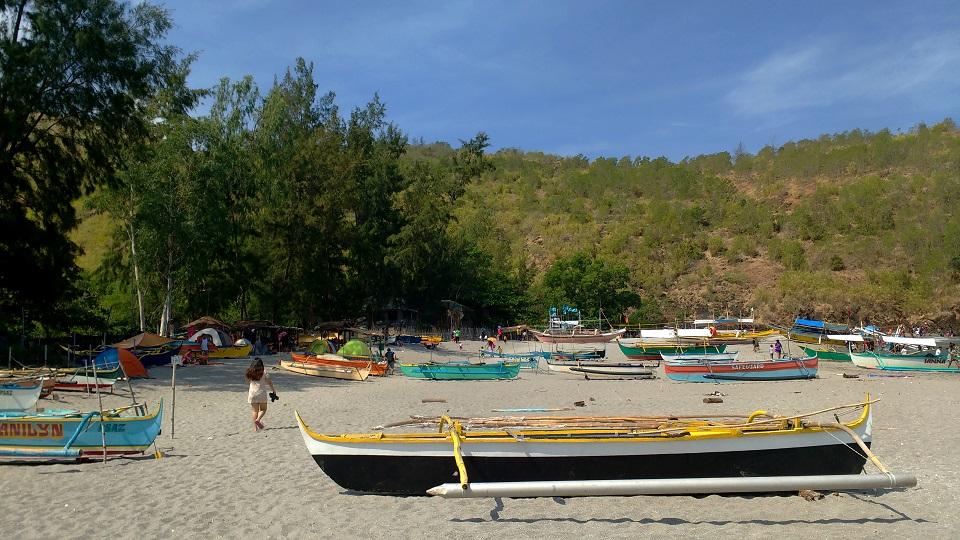
You compromise. They bring you back to the island, fetch the other group and bring them back to Pundaquit, then go back to fetch you. The sun is less harsh, and you have a frisbee. The island will soon become like the cove—it is, as a tarp proclaims, on "soft opening," and there will be a P350 entrance fee. But not for now. For now, you can walk around. The water is clear, and there are no souvenir shops in sight, only the clean white sand.
You agree to wake up at three so you can leave early and beat the traffic. It is nine and you are in your tent, ready to fall asleep, unlike everyone else in the commune, who are just getting started with their drinking sessions. It is cold and it is also warm. There is sand in the tent. Also, some thirsty mosquitoes. Outside, several groups continue to drink and talk. The conversations overlap, and what you hear feels like some other people's dreams. Thirty years ago no I didn't say that oh so you're from may Red Horse po ba kayo? At some point in the night, a dog starts to bark. Then all the other dogs bark, and you will not be able to sleep any more. Someone is snoring. It is three, and it is time to wake up.
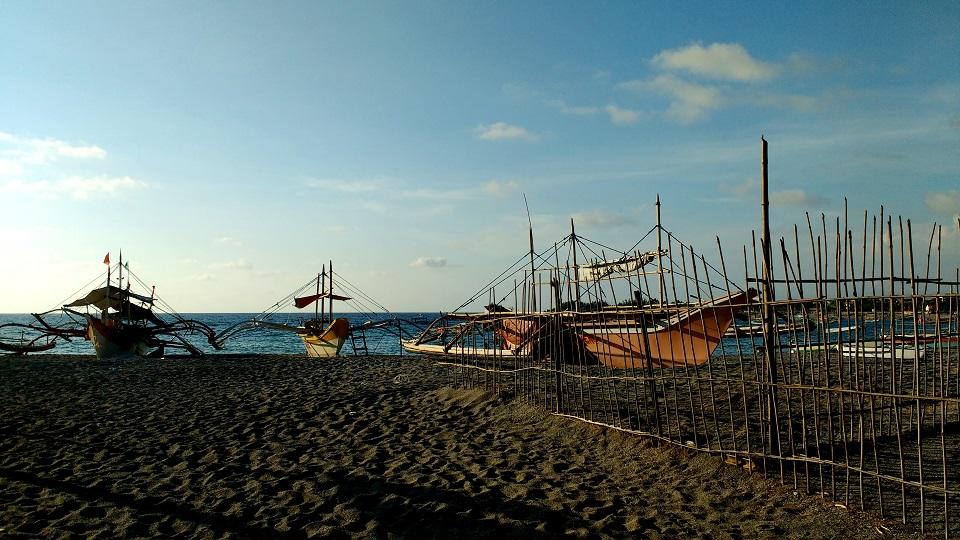
This time, things go according to plan. You leave at five, and you are back in the city by nine. You are happy to be home, lying in bed, the sound of singing crickets replaced by incessant honking. Both sounds can be irritating, but there is comfort in the familiar. As you usually are, you are relieved that the vacation is over. But a big part of you is already planning to go back, wanting to be on a swing, sand under your fingernails, sunburn that never heals, cool, clear water, and a little bit of Look Left magic. — BM, GMA News




